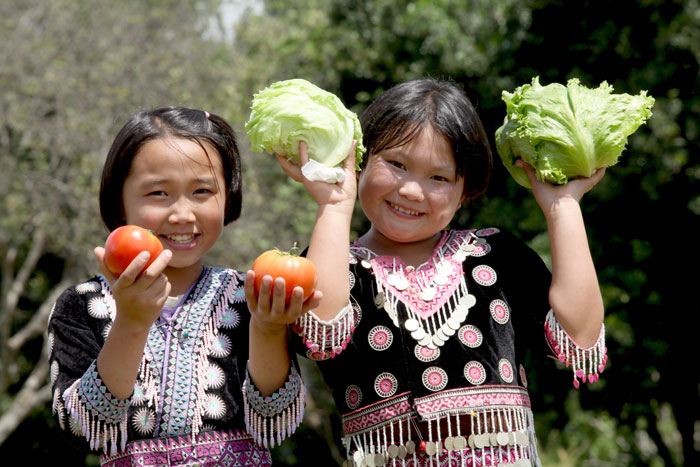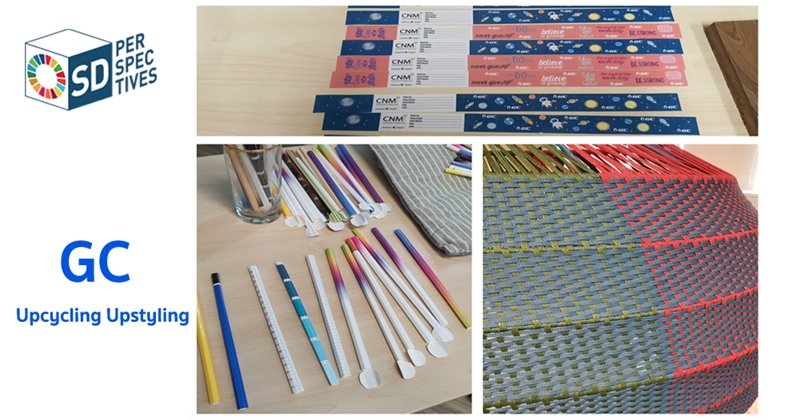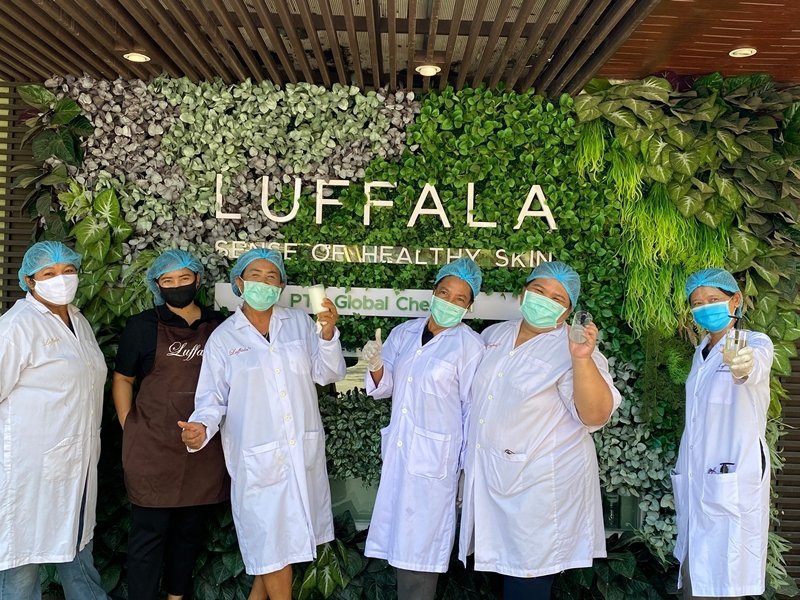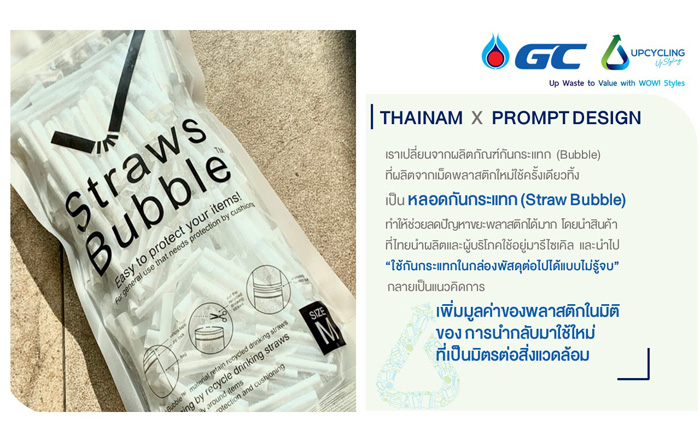Feature Stories
Delivering Economic, Social, and Environmental Benefits for a Royal Project
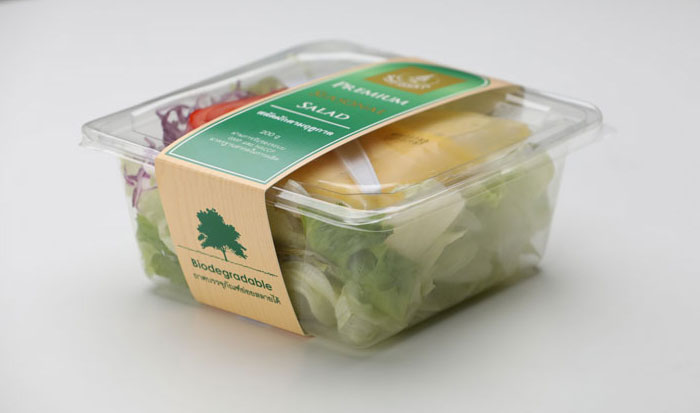
In Thailand, royal projects are nationwide community development initiatives established under the auspices of the Kingdom’s royal family. The focus of these projects is changing from philanthropy that generates goodwill to embracing the principles of social enterprises, with projects that aim for sustainability and contribute to long-term community development. Private-sector companies often participate in royal projects to help add value and increase their benefits for the nation.
PTT Global Chemical (PTTGC) supports royal projects as part of our company’s vision of being a leading chemical company for better living. The Royal Project Veggie Salad is a good example. Featuring a variety of locally-grown vegetables, this salad is a favorite among health enthusiasts in Thailand thanks to its freshness, flavor, and high nutritional value.
The Royal Project Veggie Salad is the result of a project that reflects His Majesty the late King Bhumibol Adulyadej’s ideas for self-sufficient communities. PTTGC’s involvement includes developing environmentally-friendly plastic solutions for the Royal Project Foundation for use throughout the agricultural value chain, ranging from seedlings to packaging for products and supplies.
Dr. Anchan Chompoopuang, Coordinator of the Vegetable Promotion and Development Operation at the Royal Project Foundation, said, “Royal projects use more than 20 tons of conventional plastic packaging per year, plus more than 80 to 100 tons of other conventional plastic products per year, including greenhouse film and seedling bags for fruit and flowers. The Royal Project Foundation aims to provide hygienic, quality and eco-conscious products.”
“The project called ‘The Collaborative Effort to Develop Eco plastic products for Eco-conservation in the Royal Project Foundation’s Areas’ is a collaboration involving the Royal Project Foundation, Thailand Research Fund, and PTTGC to create conventional plastic products for the environment and bioplastic products (Polylacticd acid; PLA) This project is on the right track, integrating activities that offer great and direct benefits for society and the environment. The Royal Project Foundation constantly updates all farmers who are members of the project about the advantages of resins and their environmental benefits,” she said.
Initial research and development for the project focused on five items made from resin, which are greenhouse film, environmentally-friendly veggie bags, Modified Atmosphere Packaging (MAP) bags that prolong the shelf life of agricultural produce, biodegradable plastic seedling bags, and biodegradable plastic salad trays.
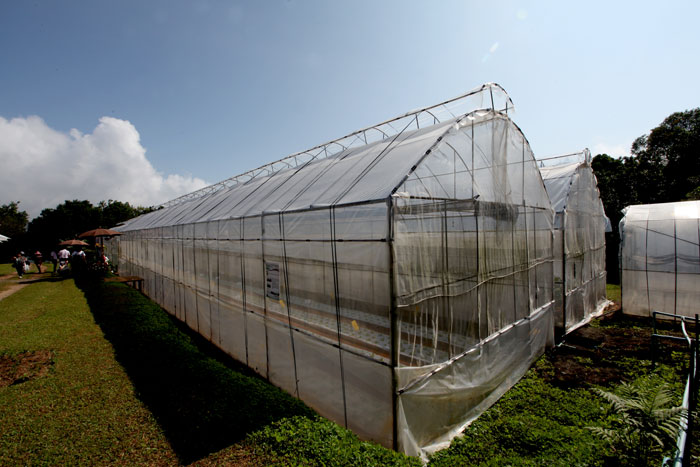
The greenhouse film, veggie bags, and MAP bags are made from PTTGC polyethylene (PE) that uses an environmentally-friendly production process with carbon footprint certification of reduced greenhouse gas emissions throughout the product cycle. Each of these items offers unique characteristics.
The greenhouse film is rigid and provides enhanced efficiency for cultivation while improving the quality of the produce inside. The environmentally-friendly veggie bags are as rigid and durable as other types of vegetable packaging. They generate 25% less carbon emissions when manufacturing the plastic pellets. The MAP bags prolong the shelf life of agricultural produce by controlling gas transmission, providing a longer average shelf life for vegetables and fruits than other packaging formats.
The bioplastic seedling bags and biodegradable plastic salad trays are made from polylactic acid (PLA), a plastic substitute derived from fermented corn starch. The bioplastic seedling bags are compostable in a normal environment within 180 days. This means young plants can be planted directly into the soil while still in the bags. The biodegradable plastic salad trays are specially designed so they are ideal for ready-to-eat veggie salads. Like the seedling bags, the salad trays are also naturally biodegradable.
In addition to developing these five eco-conscious products, PTTGC has worked with the Royal Project Development Center on key training programs since 2014. Training has been provided for 31 schools and six communities in areas under the supervision of the Royal Project Foundation, Chiang Mai. The training covers how to construct a low-cost greenhouse and how to use the greenhouse film and seedling bags to grow vegetables properly.
Pesticide-free vegetables grown in forty six newly-built greenhouse units now are used to prepare lunch for students. Vegetable gardening in community greenhouses generates additional income for local residents, contributing to a better life. The environmentally-friendly veggie bags and biodegradable plastic salad trays are used as packaging for the Royal Project Foundation’s agricultural produce, which is available to consumers nationwide.
The Collaborative Effort to Develop Eco plastic Products for Eco-conservation in the Royal Project Foundation’s Areas was a major step forward for PTTGC. It’s a real-life example of our company’s commitment to operating in line with a sustainable management policy that delivers tangible results.
PTTGC considers three aspects when it comes to sustainability, which are economic, social, and environmental. For the economic aspect, sustainability empowers our company with strategically-deployed innovations. For the social aspect, we look for initiatives that create shared value for all stakeholders. For the environmental aspect, we understand and value that we are part of the environment, and have the responsibility to improve the environment for a better life.
Applying these three aspects to projects such as The Collaborative Effort to Develop Eco plastic Products for Eco-conservation in the Royal Project Foundation’s Areas, with its clearly demonstrated economic, social, and environmental benefits, will ultimately lead to sustainable development.
